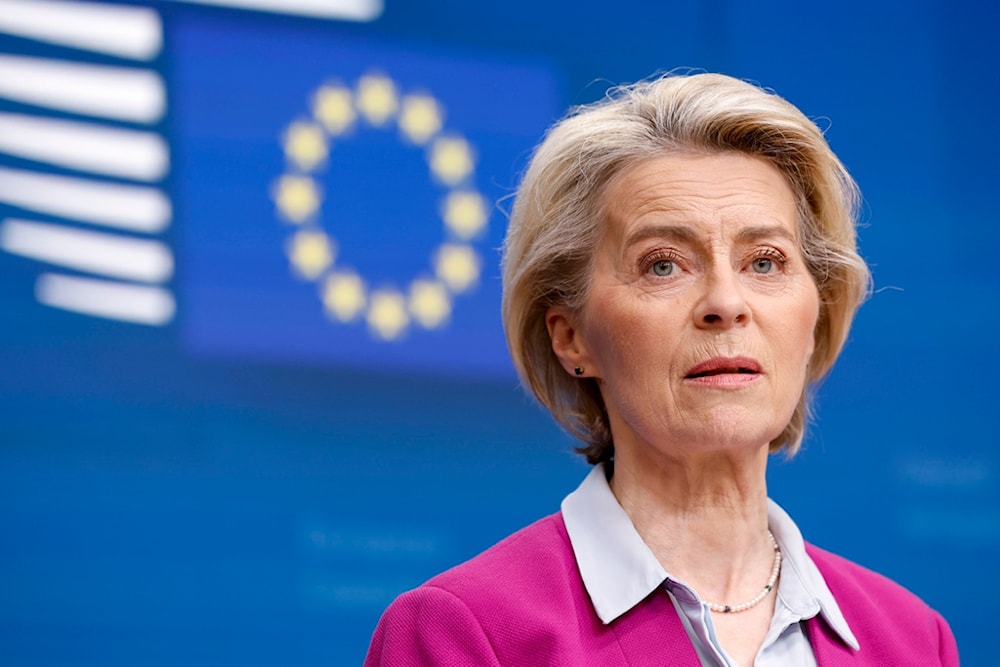EU's Von Der Leyen says bloc 'totally dependent' on China's lithium
The EU's President highlighted the bloc's heavy reliance on China for lithium as it imports 97% of its required supply from the country.
-

European Commission President Ursula von der Leyen talks to journalists during a joint news conference with European Council President Charles Michel during an EU summit in Brussels, Feb. 1, 2024. (AP)
European Commission President Ursula von der Leyen stated on Thursday that the EU relies completely on China for lithium, as the bloc imports 97% of its required supply of the material from the country.
"We have observed that China, over the last 20 to 30 years, has strategically bought mine after mine globally. They take the raw material, they have the processing procedures in China and then they have the monopoly for this raw material. Take lithium: 97% of the lithium we use in the European Union is from China. So we are totally dependent on this one on China," von der Leyen said during her opening speech at the Clean Tech Industry Dialogue in Brussels.
Media reports in September 2023 indicated that the EU faced the possibility of becoming equally dependent on China for lithium-ion batteries by 2030 as it had been on Russia for fossil fuels before the latter initiated its special military operation in Ukraine in February 2022.
Read more: Elon Musk, US sniffing around Argentina's untouched Lithium reserves
Elusive Goal of Self-Sufficiency
As much as the EU tries to become self-sufficient in terms of energy use and consumption, it simply can't seem to achieve that.
Efforts by the EU to advocate for environmental reforms and push for renewable energy plans have indeed sparked significant anger among both industrial stakeholders and farmers.
If it weren't for Russia's oil, which got significantly cheapened following the dissolution of the Soviet bloc and the defeat of the Soviet ideology, the EU would have faced even greater challenges in meeting its energy needs.
In fact, much of the bloc's growth and stability over the past three decades was owed to the consistent supply of Russian gas.
Even Germany, the largest economy in the EU, continues to purchase liquified Russian gas via Belgium and the Netherlands.
To make matters even worse, the bloc has been struggling to keep up with China in the global market for electric vehicles.
Read more: China demands EU to 'clarify' strategic relationship with Beijing
Consumers are opting to purchase Chinese-made vehicles which are far more cost-effective than their EU competitors.
Despite China's adherence to all the rules in the book, its rise is increasingly being perceived as a threat to Western economic supremacy.
A week ago, data from the Bundesbank revealed that German direct investment in China surged by 4.3% last year to a new high of 11.9 billion euros ($12.7 billion), accounting for a larger percentage of the country's overall foreign investment.

 3 Min Read
3 Min Read








